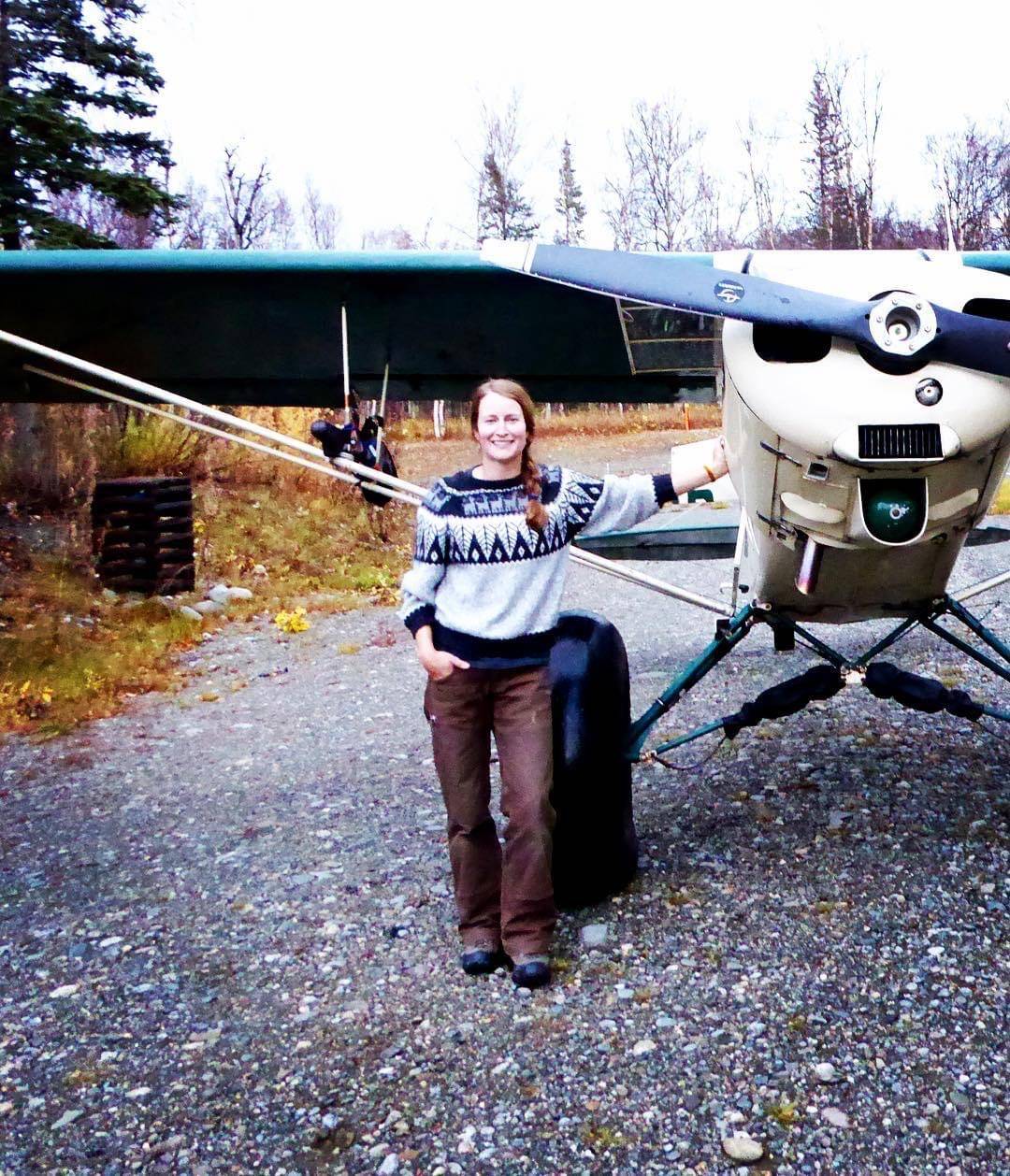By Bjorn Dihle
Hunting Guide Tia Shoemaker is fighting tooth and nail to ensure future generations will have the opportunity to experience the wilderness of Bristol Bay and the Alaska Peninsula.
“We have something incredible on the Alaska Peninsula and Bristol Bay. All we have to do is not mess it up. Millions acres of wilderness surrounded by millions acres of wilderness. John Muir and Theodore Roosevelt would be proud we still have a place like this. This place should be one of the seven wonders of the world,” Tia said this September while taking a break from preparing for moose season.
[Pride of Bristol Bay: Lessons from a Bristol Bay ‘salmon mama’]
Tia grew up in the Becharof National Wildlife Refuge on the Alaska Peninsula. The closest people to her family’s homestead were around 60 miles away in the communities of Egegik and King Salmon in Bristol Bay. To say she grew up remote is an understatement. Her parents, Phil and Rocky, who both have degrees in wildlife biology, instilled a deep reverence of and stewardship for their home in Tia and her brother, Taj.
“The place taught us that as much as our parents. I wouldn’t trade growing up here for anything,” Tia said.
Tia calls her home the Serengeti of Alaska, and she’s not exaggerating. This year more than 57 million sockeye salmon returned to Bristol Bay to spawn. This incredible pulse of life acts as the foundation for the densest concentrations of brown bears and one of the richest ecosystems on earth.
“Salmon are everything. It’s been said so many times, but it’s true,” Tia said.
Tia’s life is intimately tied to salmon and brown bears. Her family runs a small fishing and hunting guiding operation called Grizzly Skins of Alaska. During the summer they guide fishing excursions and during the fall and, sometimes spring, they guide hunts.
She has been helping out on moose hunts since she was 10. When she was 12 or 13, she started helping on brown bear hunts. Around then, her parents, fearing Tia and her brother were becoming too “bushy,” moved the family to the tiny community of Circle Hot Springs for a couple months each year to help socialize their kids. When Tia was 18, she got her assistant guide license. She’s been working as a wilderness guide in different capacities ever since.
Most hunters visiting Bristol Bay and the Alaska Peninsula come to pursue the region’s brown bears and moose. The paradoxical nature of brown bear and other forms of trophy hunting is difficult for many to come to terms with.
“There’s a magic to brown bear hunting,” Tia said.
She, along with many guides, find the act of killing a bear emotionally challenging, though. She grew up surrounded by brown bears and possesses a deep affinity and respect for the animal. Thankfully, due in large part to efforts from guides like Tia, who are deeply invested in bears and the wild country they need to thrive, there are more brown bears in Alaska than any time in the last century.
There is a very real threat to the brown bears of Alaska Peninsula and Bristol Bay, though. It also endangers the region’s incredible runs of salmon, Tia’s family and others living in the region — not to mention hunters and fisherman across the world. It can be summed up in one word: Pebble. The Army Corp of Engineers recently delayed the Pebble Mine, a massive open-pit mine and toxic waste dump proposed for the headwaters of Bristol Bay, from being permitted, but the mine is still very much alive and could receive federal permitting by the end of the year.
[Bears of McNeil and the Pebble Mine project]
Hunting is not only how Tia makes a living, it’s how she provides for herself and her family. She likes to say that after her guiding season she “switches from Boone and Crocket to Spoon and Crockpot.” During a recent caribou hunt, Tia, her mother, sister-in-law and two-year-old niece harvested a bull that would become their food for the winter. The three women guided Tia’s niece to place foliage in the caribou’s mouth in a gesture of thanks and an offering to the animal’s spirit. This simple act has been practiced by hunters across the world for thousands of years. Tia reflected on the power of sharing this ritual with her niece.
“I was reminded of all the hours and years my brother and I spent hunting and how incredible it is to witness another generation doing the same,” Tia said. “I felt a glimmer of hope for the future. Perhaps with education and foresight, we might yet keep the Alaskan Peninsula and Bristol Bay — the last true wilderness we have in the U.S. — the way it ought to be — wild.”
• Pride of Bristol Bay is a free column written by Bjorn Dihle and provided by its namesake, a fisherman direct seafood marketer that specializes in delivering the highest quality of sustainably caught wild salmon from Bristol Bay to your doorstep.

